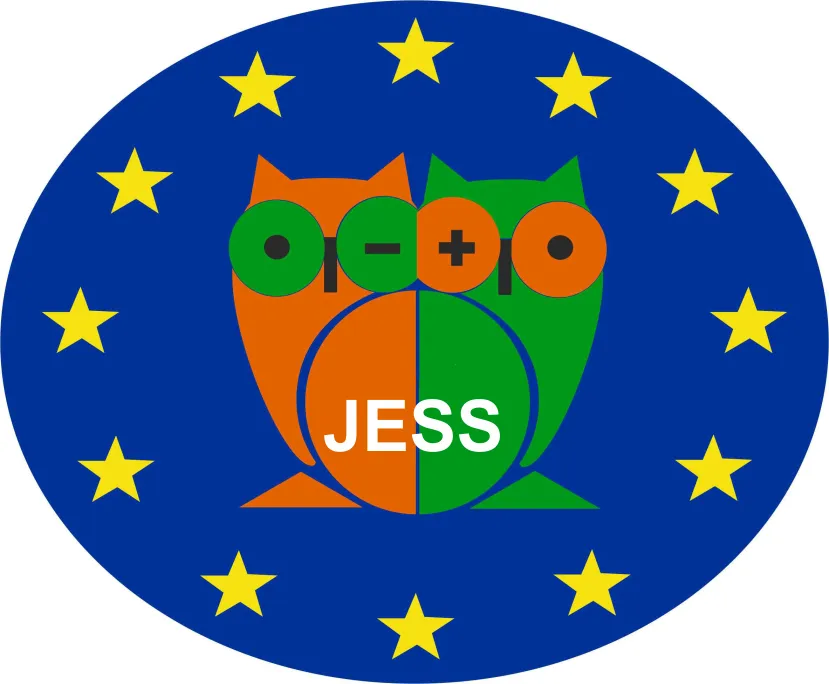About the European Summerschool JESS
Scope of the summer school
JESS primarily targets an audience of PhD students and post-doctoral researchers. The topical content of JESS is tailored to the needs of a diverse audience: newcomers to the field, experienced students, and young professionals working at the forefront of fuel cell, electrolyzer, and battery applications. All teachers are active researchers at the forefront of the topics they teach, and the format with a limited group of people all staying at the same hotel at which the courses are held, makes for networking and good discussions during the stay.The school is divided into introductory and advanced classes.
The introductory classes
are meant to prime the PhD students early in or prior to their studies in the basics of electrochemical cells for conversion and storage of energy, i.e., fuel cells, electrolyzers and batteries. People from industry and authorities with a technical background who are entering the field are very welcome too and typically among the audience.
Teaching is arranged in three parallel tracks:
High-temperature fuel cells and electrolyzers with a focus on solid oxide cells
Low-temperature fuel cells and electrolyzers with a focus on PEM cells and alkaline cells
Batteries
A number of overarching lectures are given jointly to all three tracks, but most of the time, lecturing is within the specific track chosen by the participant.
The advanced courses
are meant for students with the basic knowledge in place who like to go deeper into selected specialized topics, which may change from year to year.
See the tab on advanced courses. More experienced researchers and engineers are just as welcome and have over the years taken advantage of the JESS offerings. Many professionals wish to review these technologies and learn about them, for instance, to boost their knowledge for a newly acquired position or collect credits for a Continuous Professional Development (CPD) scheme.
JESS History
This series of summer schools has been ongoing since 2004. The series of summer schools started in 2004 within the EU-project Real-SOFC as a Summer School on SOFC technology. In 2010 to 2012 the EU-project TrainHy then broadened the range of topics to also include low temperature fuel cells, and finally batteries and electrolysers were added. The now ‘Joint European Summer School’ has been running in this format since 2013. The years and the different location are listed below:
2004 SOFC Summer School, Real-SOFC, Patras, Greece
2005 SOFC Summer School, Real-SOFC, Lausanne, Switzerland
2006 SOFC Summer School, Real-SOFC, Limnos, Greece
2007 SOFC Summer School, Real-SOFC, Varna, Bulgaria
2008 SOFC Summer School, LargeSOFC, Chania (Crete), Greece
2009 SOFC Summer School, LargeSOFC, Ancona, Italy
2010 SOFC Summer School, Thessaloniki, Greece
2011 JESS Summer School, TrainHy, Viterbo, Italy
2012 JESS Summer School, TrainHy, Iraklion (Crete), Greece
2013 JESS Summer School, JESS, Athens, Greece
2014 JESS Summer School, JESS, Rethymnon (Crete), Greece
2015 JESS Summer School, JESS, Athens, Vouliagmeni, Greece
2016 JESS Summer School, JESS, Athens, Vouliagmeni,Greece
2017 JESS Summer School, JESS, Athens, Vouliagmeni,Greece
2018 JESS Summer School, JESS, Athens, Vouliagmeni,Greece
2019 JESS Summer School, JESS, Athens, Vouliagmeni,Greece
2020 JESS Summer School, JESS, Athens, Vouliagmeni,Greece
2021 JESS Summer School, JESS, Athens, Vouliagmeni,Greece
2022 JESS Summer School, JESS, Vravrona, Athens area,Greece
2023 JESS Summer School, JESS, Vravrona, Athens area, Greece
2024 JESS Summer School, JESS, Vravrona, Athens area, Greece
The summer school has hosted over 1200 students to date.
SECRETARIAT FOR THE ORGANISATION
Contact: Manuela Drape Stathoglou
Phone +30 2810300847
Mob.+30 6945793953
Char. Trikoupi ,127
14671 - ATHENS
©All rights reserved JESS Summerschool, Future.Solutions GmbH 2024
